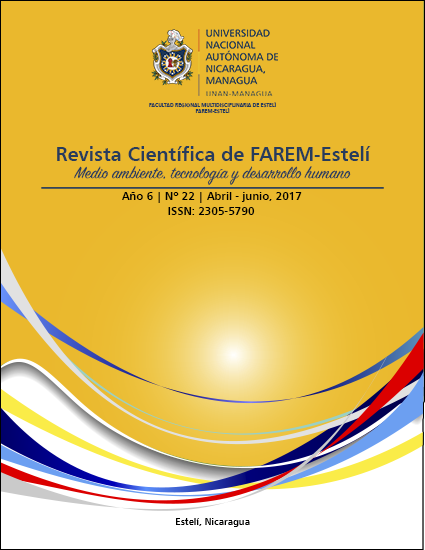Univariate and multivariate methods to analyze the academic performance of the Agricultiural Engineering program at UNI Norte, Estelí, Nicaragua
Abstract
With the objective of analyzing the academic performance of the agroindustrial engineering career in the northern UNI region, Estelí, Nicaragua, in the period 2005-2014, different univariate and multivariate statistical methods were implemented, such as: Contingency Analysis and Independence Testing, “T” independent sample test, Pearson and Spearman Correlation Analysis, averages comparison, Canonical Correlation Analysis and Multiple Correspondence Analysis. In this investigation, we determined significant statistical relationships that have been influencing the performance score. The results showed that the average grade per subject in the Women was significantly better than the group of Men. The math courses had 10 points less than those of the social profile. There were strong and significant correlations between the notes of the main subjects grouped by affinity. The subjects of basic formation explained the notes of the subjects proper to the Profession. Desertion in the classroom was 16% in the first year and then declined sharply. The Multiple Correspondence Analysis of qualitative variables, showed that the categories Woman and V year were closer to the categories of Excellence and Not Deserter, than the categories Male, I and II year.
Keywords: Academic performance, univariate and multivariate statistics.



